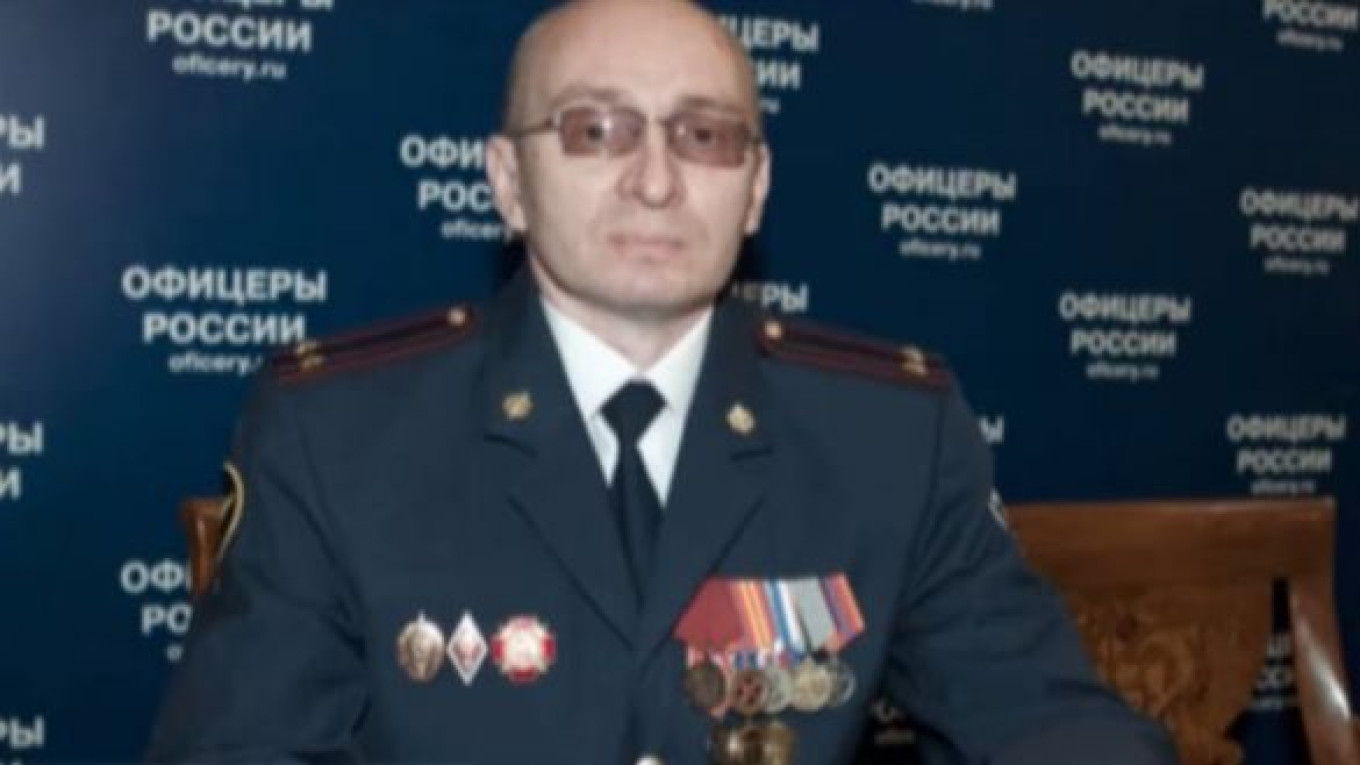A prosecutor on Monday requested that the only remaining defendant in whistle-blowing lawyer Sergei Magnitsky's death be acquitted of criminal negligence.
The United States recently passed a law to impose international sanctions on Russians it believes were involved in the 2009 death, but Russia has not made any conviction in the case.
State Attorney Dmitry Bokov asked a Moscow court to acquit Dmitry Kratov, former deputy head of the city's Butyrka pretrial detention center, due to a lack of evidence, the Rapsi legal news agency reported.
Magnitsky, who died of heart failure in a different jail, Matrosskaya Tishina, a few months after being transferred from Butyrka in 2009, had been incarcerated on tax evasion charges shortly after accusing tax and police officials of embezzling $230 million.
Kratov currently faces up to five years in prison. The verdict will be delivered Friday, the prosecution said.
An independent inquiry by the Kremlin's Human Rights Council determined that Magnitsky died after being beaten by guards. In an e-mail in June, the firm that had employed Magnitsky, Hermitage Capital, called the investigation a "farce" because Kratov was "not present at Matrosskaya Tishina."
Hermitage Capital founder Bill Browder has called Kratov a "scapegoat" and blamed President Vladimir Putin for influencing the prosecution. "What is apparent is that the prosecutor couldn't prosecute anyone with that type of political direction," Browder said.
Putin said Thursday that Magnitsky "wasn't tortured but died of natural causes," Browder said by e-mail. An independent inquiry by the Kremlin's Human Rights Council determined that Magnitsky died after being beaten.
Browder expressed belief that "the Russian government will surely get a conviction" in the posthumonous trial of Magnitsky on tax evasion charges, which will have a preliminary hearing in the same court Thursday.? ?
But Nikolai Gorokhov, a lawyer for Magnitsky's mother, asked the court on Monday to return the case against Kratov to investigators or prosecutors so that they could give Kratov graver charges, Rapsi reported, without specifying the charges. The judge rejected Gorokhov's plea because court procedures didn't allow it to be considered at this stage of the trial.
In court, Gorokhov emphasized Kratov's alleged role in Magnitsky's death, saying Kratov "personally signed" references for Magnitsky's lawyers who inquired about the failure by prison officials to provide medical aid to their defendant one month and five days before his death, Hermitage Capital said in an e-mailed statement. Gorokhov said the prosecutor's position showed that the U.S. Magnitsky Act, adopted by the Senate in early December, was "timely," the e-mail said.
But Gorokhov also told the court Monday that the criminal case into Magnitsky's death did not have enough suspects and was opened too late — 20 months after his death — "which ruled out the possibility of getting an impartial evaluation of the crime against Magnitsky and punishing all the people complicit in his murder," Hermitage Capital said.? ? ? ?
Although it was "established" that Kratov "failed to organize the necessary diagnostic and treatment events, which resulted in Magnitsky's reckless death," the prison official hadn't received any complaints from Magnitsky or other people about the lawyer's health, State Attorney Bokov said. He also pointed out that in April investigators closed a criminal case on manslaughter charges related to Magnitsky's death against prison doctor Larisa Litvinova because the statute of limitations had run out. He added that Litvinova was not acquitted.
Prosecutors said in a statement about Monday's hearing that Magnitsky died of illnesses: cardiomyopathy, pancreatic diabetes and chronic active hepatitis.
Related articles:
A Message from The Moscow Times:
Dear readers,
We are facing unprecedented challenges. Russia's Prosecutor General's Office has designated The Moscow Times as an "undesirable" organization, criminalizing our work and putting our staff at risk of prosecution. This follows our earlier unjust labeling as a "foreign agent."
These actions are direct attempts to silence independent journalism in Russia. The authorities claim our work "discredits the decisions of the Russian leadership." We see things differently: we strive to provide accurate, unbiased reporting on Russia.
We, the journalists of The Moscow Times, refuse to be silenced. But to continue our work, we need your help.
Your support, no matter how small, makes a world of difference. If you can, please support us monthly starting from just $2. It's quick to set up, and every contribution makes a significant impact.
By supporting The Moscow Times, you're defending open, independent journalism in the face of repression. Thank you for standing with us.
Remind me later.


